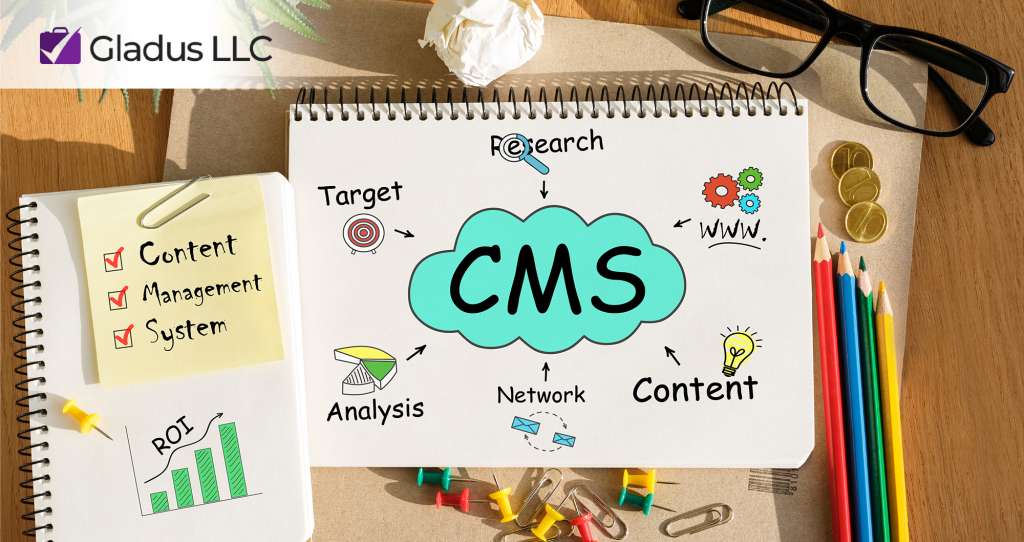In today’s digital age, the importance of an effective online presence is undeniable for businesses and individuals alike. This is where a Content Management System (CMS) becomes invaluable. But, what exactly is a CMS? This comprehensive guide will explore the intricacies of CMSs, their benefits, types, and how they’re revolutionizing the way we manage web content.
The Basics of CMS
At its core, a CMS is a software application that enables users to create, manage, and modify content on a website without needing specialized technical knowledge. It provides a user-friendly interface, allowing even those with minimal technical expertise to easily manage web content.
Key Features of a CMS
User-Friendly Interface
A CMS offers a straightforward dashboard that makes navigating through different functionalities a breeze.
Content Editing and Management
Users can edit and manage web content with tools similar to word processors.
Design Flexibility
Most CMS platforms offer customizable templates and themes to tailor the look of your website.
Access Control
It allows for varying levels of access to different users, enhancing security and workflow efficiency.
The Importance of CMS in Today’s Web Environment
In the fast-paced digital world, the ability to quickly update and manage web content is crucial. A CMS empowers users to keep their website content fresh and relevant, improving user engagement and SEO performance.
Different Types of CMS
Open-Source CMS
Platforms like WordPress and Joomla are free to use and modify, supported by a community of developers.
Proprietary CMS
These are paid platforms, often coming with dedicated support and hosting services.
Software as a Service (SaaS) CMS
Cloud-based solutions that offer scalability and ease of access, typically on a subscription basis.
How CMS Enhances Web Development
A CMS simplifies web development by removing the need for complex coding, making website creation accessible to a broader audience and significantly reducing development time.
The Role of CMS in SEO
A good CMS can greatly enhance your SEO efforts by providing SEO-friendly URL structures, easy content updates, and integrations with various SEO tools and plugins.
Content Management vs. Content Delivery
While CMS focuses on content management, Content Delivery Networks (CDN) ensure faster content delivery across the globe. Many CMS platforms integrate with CDNs to enhance website performance and user experience.
Choosing the Right CMS for Your Needs
Selecting a CMS should be based on your specific needs, considering factors like ease of use, scalability, support, and security features.
The Future of CMS: Trends and Predictions
The CMS landscape is continuously evolving, with trends like AI integration, headless CMS, and increased emphasis on user experience shaping the future.
Integrating CMS with Other Tools and Platforms
Modern CMS platforms offer extensive integration capabilities with social media, marketing tools, and e-commerce platforms, enabling a more cohesive digital strategy.
CMS Best Practices for Effective Content Management
To maximize the benefits of a CMS, it’s crucial to follow best practices such as regular updates, consistent content backup, and leveraging analytics for content optimization.
FAQ: Everything You Need to Know About CMS
1. Can a CMS handle e-commerce functionalities?
Yes, many CMS platforms offer e-commerce functionalities either natively or through plugins and extensions, allowing users to manage products, payments, and shipping within the same system.
2. Is it necessary to know coding to use a CMS?
No, one of the main advantages of a CMS is that it allows users to manage and publish content without any coding knowledge, thanks to its user-friendly interface and editor tools.
3. How does a CMS impact website speed?
A well-optimized CMS can positively impact website speed by providing efficient content management and integrating with CDNs. However, the choice of themes, plugins, and overall content management practices can also affect speed.
4. Can I switch from one CMS to another?
Yes, it’s possible to migrate from one CMS to another, but the process can be complex and may require technical assistance, especially for large and complex websites.
5. How does a CMS improve content security?
A CMS enhances content security through features like user role management, regular updates to patch vulnerabilities, and options for secure hosting and backups.
By demystifying the concept of CMS, we can appreciate its pivotal role in modern web development and content management. Whether you’re a business owner, a content creator, or someone looking to establish an online presence, understanding and utilizing a CMS can significantly streamline your digital operations and enhance your online visibility.


